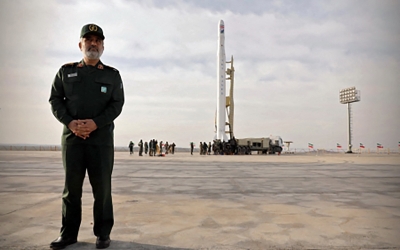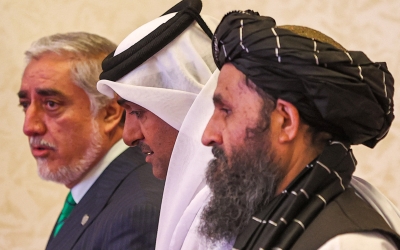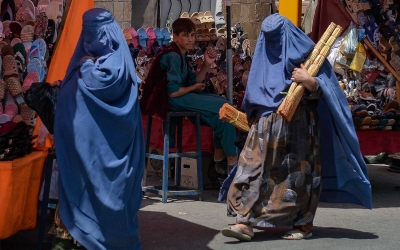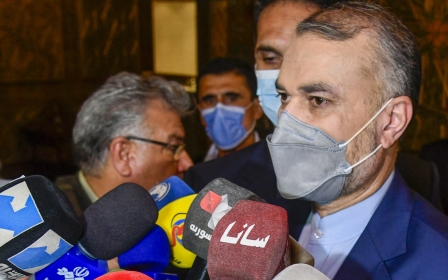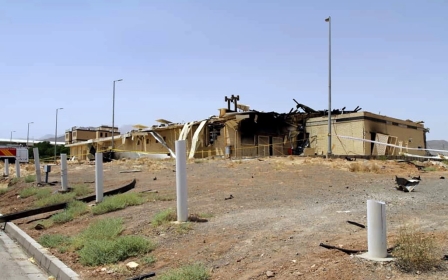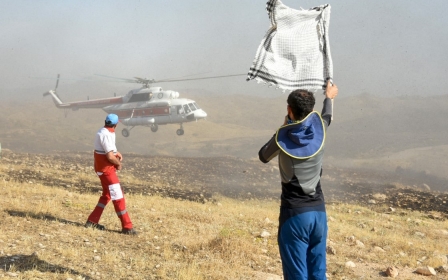Iranian press review: Foreign minister's regional trip reveals changed priorities
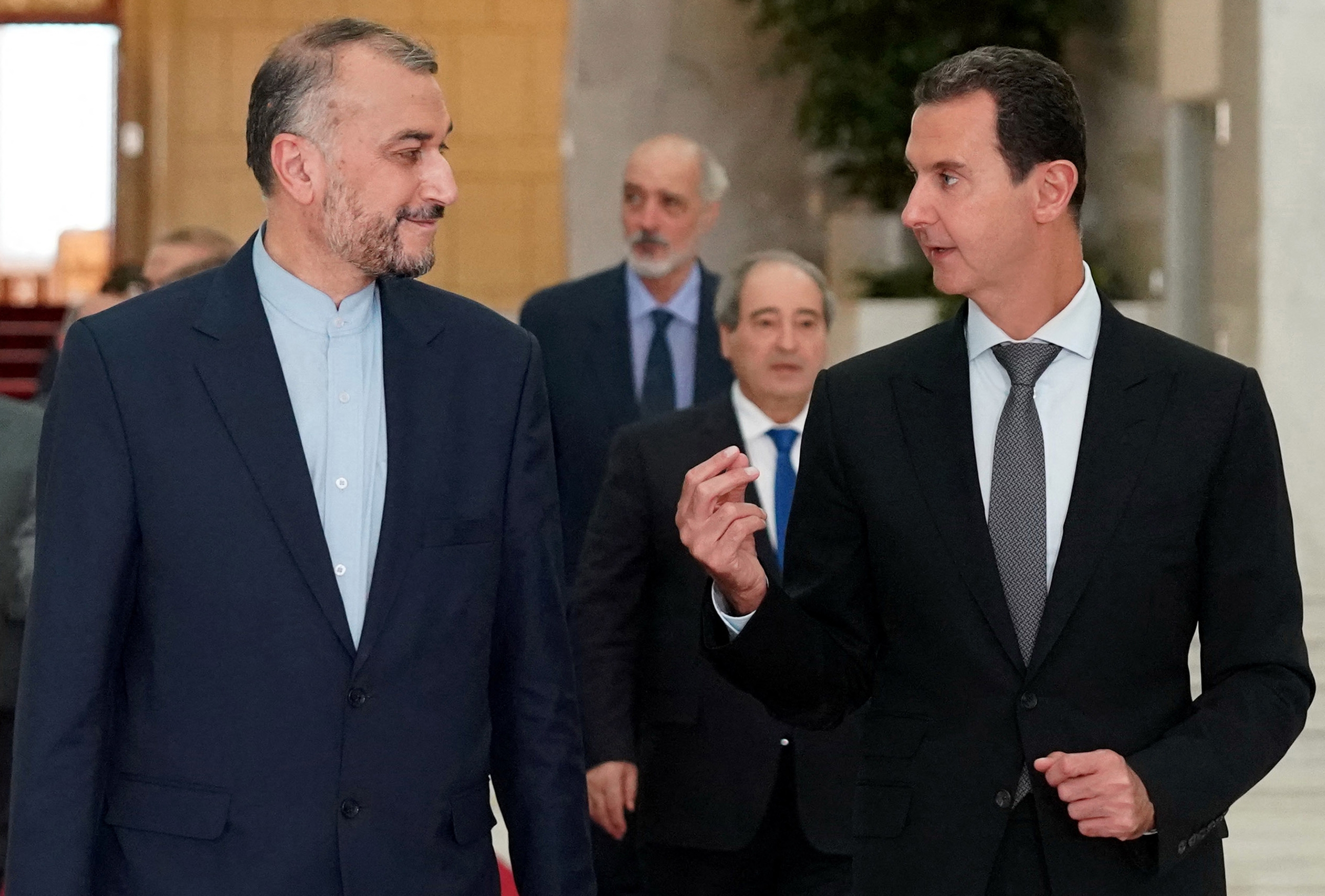
Baghdad and Damascus visits reveal new foreign policy
Iranian Foreign Minister Hossein Amir-Abdollahian's first trip abroad revealed Tehran's changed foreign policy under the new government, including strengthening ties with regional allies and confronting enemies, local media said.
Analysts suggested that Amir-Abdollahian's visits to Iraq and Syria last week were a sign that President Ebrahim Raisi's administration would prioritise adopting new policies and rhetoric in its international relations, which would result in tactics other than negotiating with the West.
The conservative Jame Jam daily, in interviews with analysts, noted that a dramatic change in Iran's foreign policy would take place with Amir-Abdollahian's leadership in the country's foreign ministry.
Saadollah Zaare, an Iranian foreign policy expert, told the daily that the new administration would not repeat "the mistakes" that the former president Hassan Rouhani made in negotiating with the West.
"The former administration's foreign policy was based on the relationship with the West; which has not reached any point and wasted Iran's time for eight years," Zaare was quoted as saying.
"The new administration's priority is based on expanding ties with neighbouring and Muslim countries. Having ties with European countries is the last priority for this administration."
Other analysts recalled Amir-Abdollahian's background in consolidating groups allied with Iran in the Middle East known as the Axis of Resistance.
Abolfazl Zohrehvand, former Iranian ambassador to Afghanistan, told Jame Jam that with Amir-Abdollahian running the foreign ministry, Tehran's support to the Axis of Resistance would enter a new phase.
"If we believe that resistance defines the geopolitics of this region, it means we must be honest with our allies," Zohrehvand was quoted as saying.
"The foreign minister's visit to Damascus was a practical move showing Iran's seriousness in assisting its allies."
Tehran seeks new ways to bypass sanctions
Iran's newly appointed oil minister, Javad Oji, has assured lawmakers that his ministry would exercise new tactics to bypass US sanctions, which sharply reduced the country's exports of oil and petrochemical products.
Speaking during a parliamentary session for a vote of confidence to President Ebrahim Raisi’s cabinet, Oji said: "We will apply an active approach to get around and neutralise US sanctions."
Since the 2018 unilateral withdrawal of the US from the nuclear deal and reintroduction of a crushing blockade on Iran’s economy and banking system, under a "maximum pressure" policy, Tehran has lost over $100bn in income from oil exports, official data shows.
The ultraconservative minister vowed to mobilise all executive entities to export Iran's oil, gas and petrochemical products.
However, experts have warned that bypassing US sanctions on oil export would not save Iran's economy from its current deep crisis.
Ali Heidari, an Iranian economist, told the Ebtekar daily that former administrations had already tried the possible ways to get around US sanctions on Iran.
"Nowadays, Iran faces almost no obstacle to sell oil because we trade most of our oil in the open seas with a price lower than global prices," he said, referring to Iran's tactic of ship-to-ship oil transfer.
"Our main problem is how to get the oil income into the country," he added.
Tehran puts break on cycling push
The Khabar Online reported that the deputy chairman of Tehran's newly elected city council, Parviz Sarvary, has stressed that the council will no longer promote riding bicycles in Tehran.
Sarvary said that encouraging citizens to ride bicycles in the capital will not be a preference in city planning. He also criticised reformist politicians and former council members for "showing off" by riding bicycles.
In June’s municipal elections, conservatives won all of Tehran’s 21 seats and a hardliner member of Iran's Islamic Revolutionary Guard Corps (IRGC) was appointed as the capital's new mayor.
Riding bicycles in the city has always been at the centre of confrontation between reformists and conservatives due to the latter’s opposition to women cycling in public. But now with conservatives in power, analysts foresee that progressive planning would be reversed in Tehran.
Explaining his reasons for his position, Sarvary said that planning for cycling in cities should be carried out according to the weather conditions of each city.
"For example, in European countries riding bicycles [in cities] is an important matter, and that is because of good weather conditions," he was quoted as saying.
"[In Europe] they have enough precipitation, and this good weather enters into the body, but in Tehran, the level of air pollution is higher than normal, and every inhale and exhale could cause sickness.”
Half of university entrants drop out
The Hamshahri daily revealed that over half of young adults qualified to study at Iran's public universities have dropped out due to economic hardships.
Having a university degree is very important in Iranian society, and every year hundreds of thousands of young people enroll in universities.
In order to enter public universities, which provide some of the best education in the country, about 1.3 million prospective students participate in a national two-stage entrance exam. Less than 10 percent of the participants would be eligible to enter universities.
According to Hamshahri, only 48 percent of this year's qualified students chose a major at universities, while the other 52 percent preferred to forgo higher education.
The daily wrote that many families could not economically support their children to complete their education, especially if they enroll in a university outside their city of residency.
The rise in unemployment among Iranian youth with a university degree and the high inclination to migrate at the end of high school are other reasons behind the youth's decreasing interest in studying at universities.
*Iranian press review is a digest of news reports not independently verified as accurate by Middle East Eye
Middle East Eye propose une couverture et une analyse indépendantes et incomparables du Moyen-Orient, de l’Afrique du Nord et d’autres régions du monde. Pour en savoir plus sur la reprise de ce contenu et les frais qui s’appliquent, veuillez remplir ce formulaire [en anglais]. Pour en savoir plus sur MEE, cliquez ici [en anglais].


